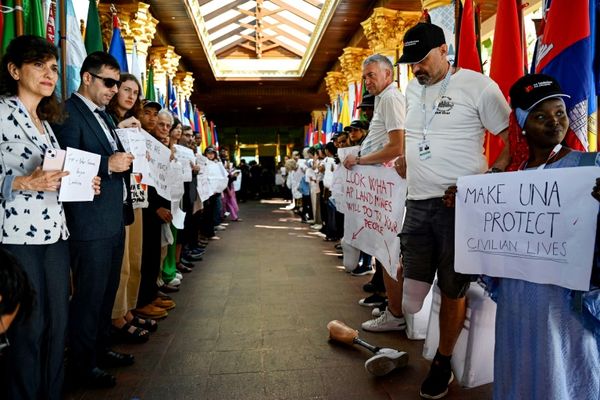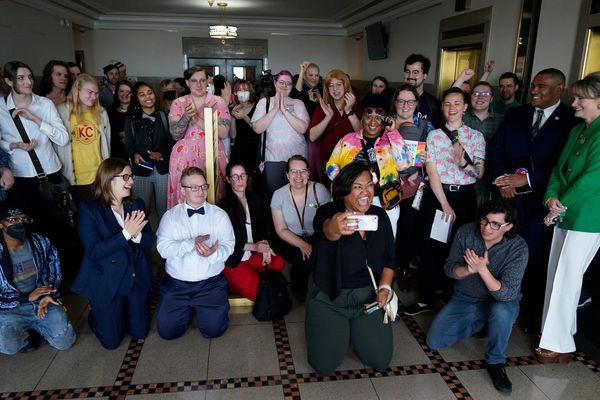
I found Hashi Mohamed’s response to Rishi Sunak’s elevation to prime minister curmudgeonly (Rishi Sunak is Britain’s first Asian prime minister – but it’s no progressive victory, 25 October). It is true that Sunak has had a privileged upbringing, but he worked hard at school and university, and deserves his success. You don’t have to agree with his politics – I don’t – to recognise that, similar to the election of President Obama, something has changed. The dial has shifted – dramatically, publicly and visibly.
There must be thousands of young people who can now, with more than just a dream in their soul, think: “If he can make it, so can I.” I think that is marvellous, even if I am not so naive as to think that nativist xenophobia and racism don’t exist, or that structural issues around multigenerational poverty and social deprivation won’t also hinder many.
The challenge now is for “progressives” to recalibrate their worldview. They can start with accepting that race and colour do not predetermine life outcomes, and that real change is possible. In the meantime, I congratulate Sunak on being our first person of colour, and the youngest person for 200 years, to reach the highest office in the land.
Simon Diggins
Rickmansworth, Hertfordshire
• Perhaps trickle-down diversity doesn’t work, as Marcus Ryder suggests (Rishi Sunak will be PM, but don’t get too excited: trickle-down diversity doesn’t work, 24 October), but surely there is an upward pull to diversity at the top of the ladder. Does it not give hope to those lower down the food chain that people other than white men of a certain age can be in positions of power? Does it not reassure those who hold back, thinking that they will get automatically turned down for promotion based on their skin colour? Even for the general population, it offers a sense of belonging that the people running the country they call home represents some of its diversity.
Nitharna Sivarajah
Sawbridgeworth, Hertfordshire
• As the son of an immigrant and a mixed-race British man, I am conflicted about Rishi Sunak’s appointment. Unlike Sunak, I am from a low-income, Anglo-Chinese background, so have had an opposite existence to him. While I am pleased to see a non-white prime minister, I find this cabinet’s immigration views to be downright hypocritical. These policies would have prevented the existence of me and many of my peers, because our families wouldn’t have been allowed to settle here and work hard, like my grandparents did when they came to Sheffield in 1974.
David Chan
Belper, Derbyshire
• The massive challenges facing Rishi Sunak should not blind us to the significance of Britain’s first prime minister from the Asian community (Editorial, 24 October). The first MP from the Asian community was Dadabhai Naoroji, originally from Bombay, who was elected in 1892 as the Liberal MP for Central Finsbury. He had lost an election for the seat of Holborn six years previously, and the prime minister at the time, Lord Salisbury, said that the constituents were not ready to have a “black man” as their representative.
Huge postwar migration sparked instances of racial discrimination and bias. The ill feeling towards these communities was encapsulated most famously in Enoch Powell’s “rivers of blood” speech in 1968. When 30,000 Ugandan Asians came to Britain after fleeing Idi Amin in 1972, they received a mixed welcome. But prejudices have been challenged and worn down over time. In the last election, in 2019, 65 MPs from ethnic minority backgrounds were elected.
The rise of British Asians in politics reflects the success and contribution of that community. At more than 4.3 million (6.9% of the population), the number of British Asians is projected to grow; the overall ethnic minority population in Britain is set to increase to 20% by 2051. It is critical that youngsters from minority communities have role models to look up to. Seeing a British Asian as prime minister will enable young Britons from all backgrounds to see that anything is achievable in 21st-century Britain.
Dr Peter Chadha and Zaki Cooper
Co-chairs, British Indian Jewish Association
• Have an opinion on anything you’ve read in the Guardian today? Please email us your letter and it will be considered for publication.






